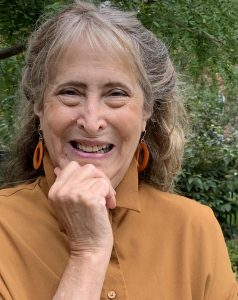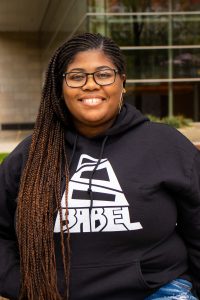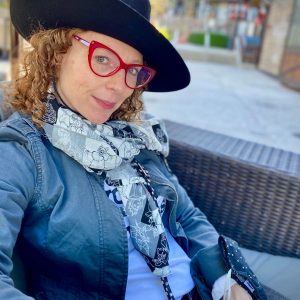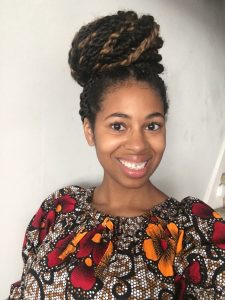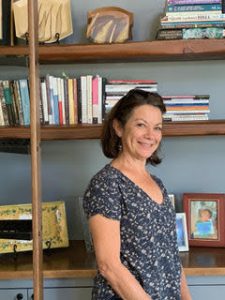
San Girolamo, Caravaggio, 1605
In a dark room, San Girolamo writes with a quill pen.
He’s partially draped in a rich, red cloth, maybe a cloak,
maybe the covers from his bed as if he rushed naked
to the table straight from a dream, fevered with ideas.
A thick book on his lap. A thin halo’s edge,
barely visible in the dark, hints above his balding pate
at hallowedness. For all the years I’ve dusted this framed
postcard on our bedroom dresser, that little light remained hidden.
The blessedness I’ve always seen, what gets me
every time —the firm arm of a man reaching for — what?
a word? some truth? Muscled, alive, tendoned. Only the holy
of a bare-shouldered body.
Here’s the tableau: the ancient saint stretches without looking
toward an inkwell in shadows — books, cloth, oaken table,
and a blank-faced memento mori.
The man reads. The skull stares.
That hollow head a warning that the world’s fleeting,
the dark and light of afterlife eternal. But, oh, Master,
this is a game. The skull is half hidden, a dull
paperweight, unheeded. Your model — bright, vital,
glowing with thought.
I conjure you whispering
as you paint, a voice escaping time from that museum
postcard on the bureau as my love and I loll in bed —
Listen, before it’s too late. Allow yourselves scarlet
bedclothes, and strong bodies in a glowing room,
and work you want to dive into, and books,
books are good, piles of them to retreat to,
partly naked, after rolling around
half the night with your love, alive, hungry,
eating up this life and one another while you can.
Mary Jo LoBello Jerome, a Bucks County PA Poet Laureate, edited the creative writing prompt book Fire Up the Poems. Recently named poetry co-editor for the Schuylkill Valley Journal, Mary Jo has published poems and stories in many journals. Her chapbook, Torch the Empty Fields, is coming out in 2022.
